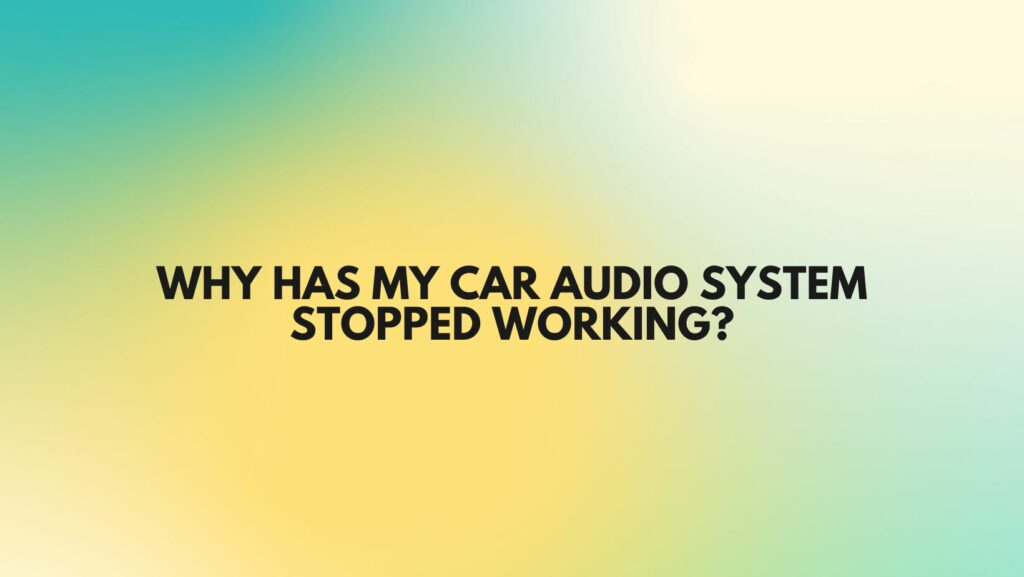The hum of your favorite tunes, the thrill of a powerful bassline – these are the sounds that elevate your driving experience. However, when your car audio system suddenly falls silent, it can be a frustrating and perplexing situation. In this article, we will explore the common reasons why your car audio system might have stopped working, offering insights into the potential issues and guidance on troubleshooting to revive the beats and restore harmony to your drive.
- Check the Power Connection:
- The most basic yet critical element to examine is the power connection. Ensure that your car is turned on, and the audio system is receiving power. A blown fuse or a loose wiring connection can disrupt the power supply to your car stereo.
- Examine the Fuses:
- A blown fuse can be a common culprit when your car audio system stops working. Consult your vehicle’s manual to locate the fuse box and check for any blown fuses related to the audio system. Replace any damaged fuses with ones of the correct rating.
- Inspect Wiring Connections:
- Loose or damaged wiring connections can lead to an interruption in the audio system’s functionality. Inspect the wiring behind the head unit and speakers for any signs of wear, fraying, or disconnection. Secure and repair any compromised wiring.
- Assess the Head Unit:
- The head unit, or car stereo, might be experiencing technical issues. Check for error messages or indicators on the display. If the head unit appears unresponsive, try a reset (if applicable) or consult the user manual for troubleshooting steps.
- Evaluate Speaker Connections:
- Loose or disconnected speaker wires can result in a loss of sound. Inspect the connections at the back of each speaker and ensure they are securely attached. If necessary, reconnect or replace damaged speaker wires.
- Bluetooth or Connectivity Issues:
- If your car audio system relies on Bluetooth or other wireless connectivity, check if the pairing settings are intact. Reconnect your device and ensure it is within range. Resetting the Bluetooth connection or updating the system software may resolve connectivity issues.
- Check for Mute or Volume Settings:
- It might seem obvious, but overlooking the mute function or extremely low volume settings can happen. Ensure that the audio system is not muted and that the volume settings are appropriate for audible playback.
- Examine the Antenna:
- If you primarily use the radio, a malfunctioning antenna can result in poor or no reception. Inspect the antenna for any damage or loose connections. Consider replacing the antenna if necessary.
- Evaluate External Factors:
- Environmental factors such as extreme temperatures, moisture, or exposure to direct sunlight can impact the performance of your car audio system. Protect your car from these elements and ensure that components are shielded appropriately.
- Professional Assistance:
- If all else fails, seeking professional assistance from a car audio technician or the vehicle manufacturer’s service center is a wise option. They can diagnose and address complex issues that may require specialized equipment or expertise.
Conclusion:
A silent car audio system can be a disheartening experience, but understanding the potential causes and performing systematic troubleshooting steps can often reveal the solution. Whether it’s a simple wiring issue, a blown fuse, or a more complex technical glitch, taking the time to diagnose and address the problem ensures that you can once again enjoy the soundtrack of your journeys. Remember, patience and diligence are your allies in bringing back the music to your drives, making every trip an auditory delight.

